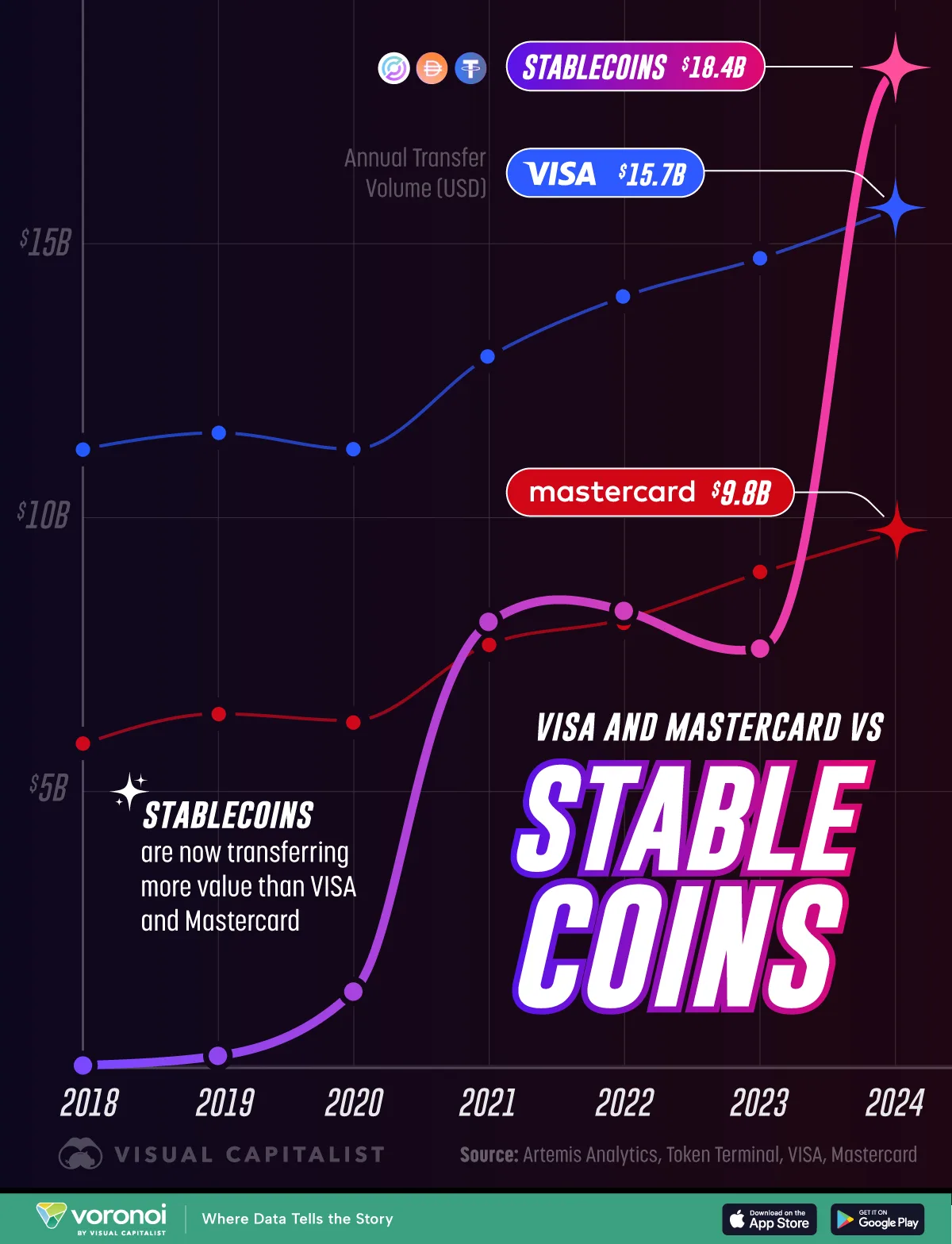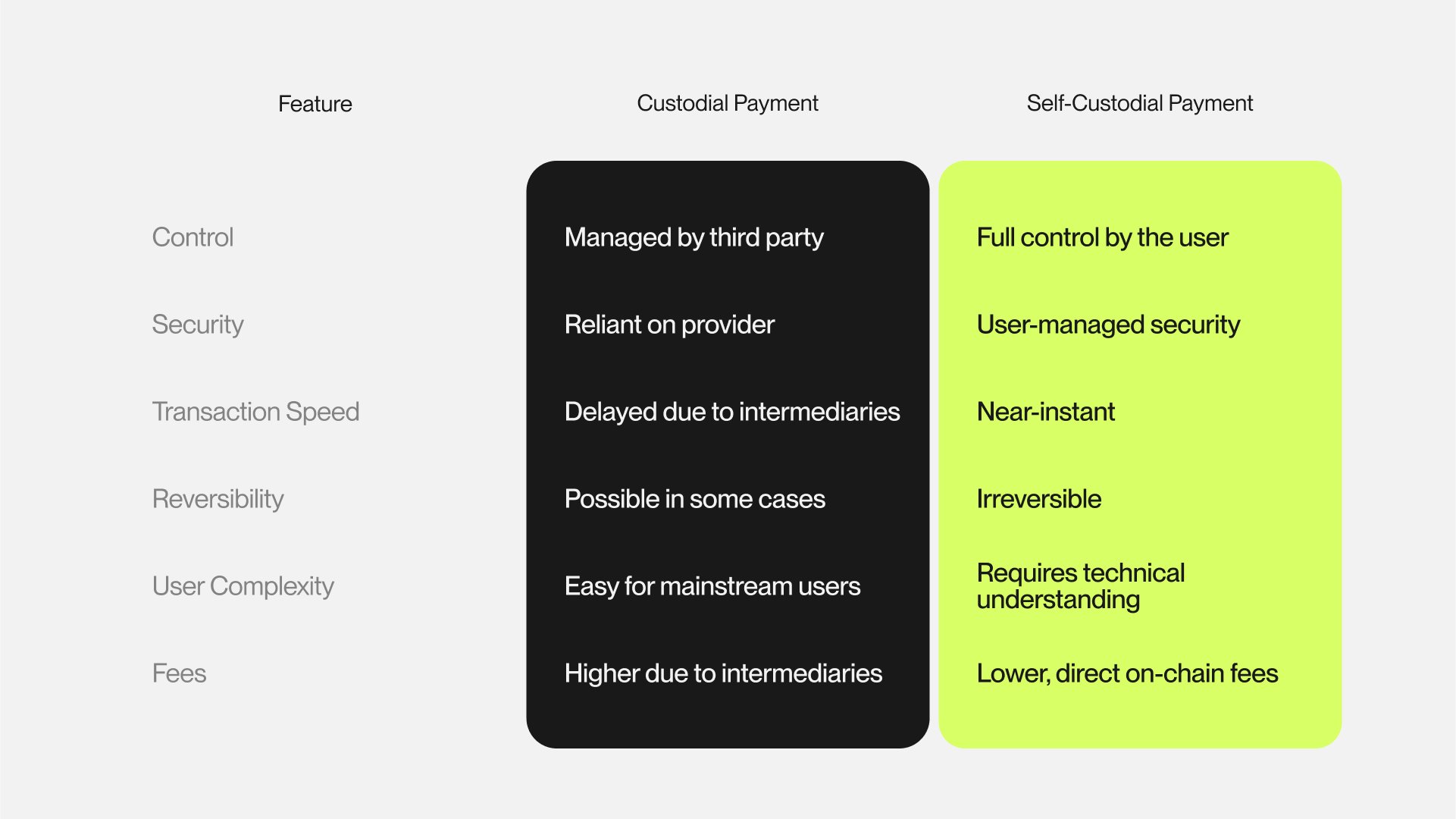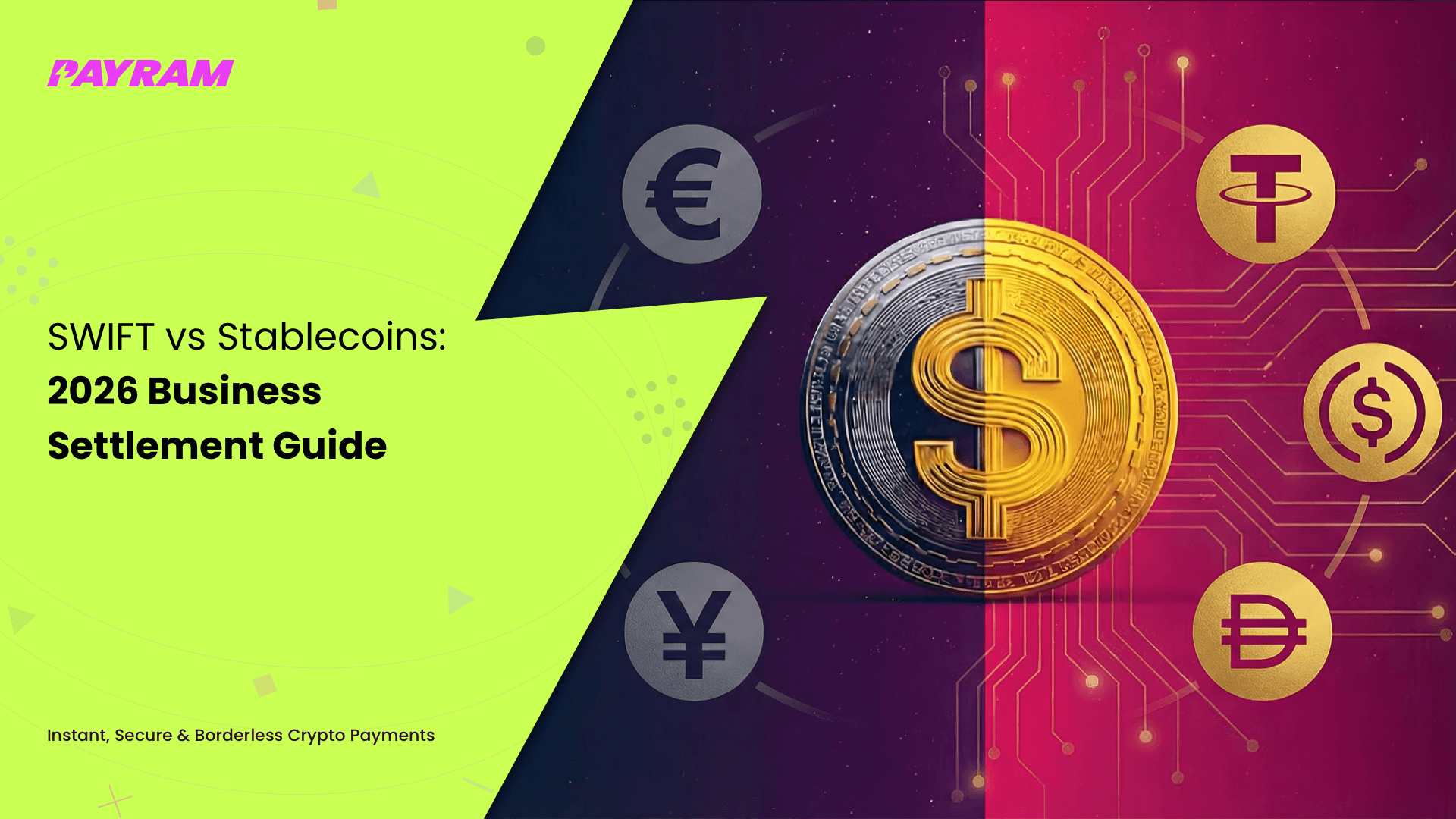Self-Hosted Crypto Gateways for iGaming: The 2025 Sovereign Operator Guide

The 2025 iGaming Payment Paradox: Growth vs. Constriction
This is the "2025 Payment Paradox": while the volume of money seeking to enter the iGaming ecosystem is at an all-time high, the traditional rails designed to move that money are becoming narrower, slower, and more exclusionary. Operators today face a tripartite threat of aggressive de-risking by banks ("Operation Choke Point 2.0"), tightening compliance frameworks in major jurisdictions, and the fragmentation of global markets into siloed regulatory regimes.
In this environment, cryptocurrency has transcended its "niche" origins. It is no longer merely a tool for privacy-centric players, it has become the essential liquidity layer for the industry. Data indicates that stablecoins now power over USD 4 trillion in annualized transaction volume, rivaling major card networks like Visa and Mastercard in throughput. For the high-risk merchant account sector, this isn't just about adoption, it's about infrastructure survival.
"The difference between platforms that dominate and those that disappear often comes down to one choice: their payment backbone." — Antier Solutions, iGaming Industry Experts
The crypto payment gateway for iGaming is no longer an alternative feature—it is the primary rail for business continuity.
The Death of the "Global Playground": A Regulatory Reality Check
The existing narrative of a borderless "Global Playground" where digital currencies effortlessly bypass borders is dangerously outdated. In 2025, the regulatory map has fractured into distinct zones of permissibility, requiring operators to navigate complex cross-border betting regulations with surgical precision. Payment sovereignty is now the defining competitive advantage.
Brazil: The Closed Loop and B2B Treasury Opportunities
Brazil, long viewed as the "sleeping giant" of Latin American markets, has instituted a rigorous framework that fundamentally alters the role of cryptocurrency. The enactment of Normative Ordinance SPA/MF Nº 615/2024 has established a "closed loop" financial system. To ensure full traceability for taxation and AML purposes, Brazilian regulators have explicitly prohibited the use of cryptocurrencies, cash, and credit cards for direct betting transactions. Funds must move solely between a registered bettor's bank account and the operator's authorized account via electronic transfers like Pix or TED.
"Crypto transactions are banned in Brazil's regulated market, marking a shift toward stricter compliance and transparency for licensed operators." — iGaming Business Legal Analysis
This regulation creates a clear bifurcation. While the front-end (player-to-operator) must be fiat-based for licensed entities, the back-end economy—specifically cross-border settlements with international affiliates, software vendors, and data providers—remains inefficient if conducted via traditional SWIFT transfers. High-volume operators are increasingly utilizing PayRam for Cross Border Payments, leveraging stablecoins to move profits out of the Real (BRL) and into USD-pegged assets instantly, bypassing the volatility and high FX fees of the traditional banking system.
India: Navigating the "Online Money Game" Ban
The regulatory landscape in India has hardened significantly with the introduction of the Promotion and Regulation of Online Gaming Act, 2025. The Act creates a binary distinction between permitted "Online Games" and prohibited "Online Money Games" (effectively banning wagering on outcomes). Crucially, the legislation explicitly prohibits banks and payment system providers from processing financial transactions related to these prohibited games, weaponizing the banking system against offshore operators.
For international platforms continuing to serve the Indian demographic, relying on local UPI rails carries an extreme risk of asset seizure and domain blocking. In this hostile environment, censorship resistance is not a luxury, it is a necessity. Bitcoin gambling in India and other crypto-native modalities remain the only viable rails. A self-hosted gateway like PayRam provides the technical resilience required to maintain operations, as non-custodial wallets cannot be frozen by third-party decrees.
Nigeria: The Stablecoin Lifeline vs. Federal Conflict
Nigeria presents a complex case of regulatory overlap, characterized by a jurisdictional tug-of-war between the Federal Government's Central Gaming Bill and individual State boards like the Lagos State Lotteries Board. While this legal ambiguity creates compliance headaches, the consumer behavior is clear: Nigeria remains a global leader in crypto adoption.
The volatility of the Naira has driven players toward stablecoin settlement as a hedge against inflation. Offering accounts denominated in USDT or USDC is a massive retention tool, as players prefer to hold their bankroll in stable assets rather than a depreciating local currency. By integrating PayRam, operators can tap into this "unbanked" but digitally native market, bypassing the friction of the traditional banking sector while offering a store-of-value utility that competitors utilizing only fiat cannot match.
The Stablecoin Standard: Infrastructure for High-Velocity Betting
The romanticized era of the "Bitcoin Casino" is technologically obsolete for the use cases of 2025. While Bitcoin remains the dominant asset for holding value, its network constraints—specifically the 10-minute block time and variable transaction fees—render it unsuitable for the high-velocity, high-frequency nature of modern iGaming. In live sports betting, speed is the product.
The industry has standardized on stablecoins because they offer the stability of fiat currency combined with the settlement speed of blockchain. Stablecoins now comprise 30% of all on-chain crypto transaction volume, confirming their dominance as the preferred medium of exchange for high-frequency users. McKinsey data highlights that stablecoins on networks like Solana can achieve settlement in sub-seconds with fees often less than $0.01. This performance profile is non-negotiable for operators looking to capture the "micro-betting" market.
"Stablecoins are no longer just a niche crypto asset but the foundation of a new global settlement layer." — PayRam Market Report
USDT (Tron) vs. USDC (Solana/Ethereum): Selecting Your Rails
A robust payment strategy requires supporting both USDT on Tron for retail ubiquity and USDC on Solana for institutional speed and compliance. Operators must understand the distinct utility profiles of the market leaders to optimize their treasury strategy:
- USDT on Tron (TRC20): Tether remains the liquidity engine of the crypto-gambling sector. It is the undisputed king of the "Gray Market" and retail bettors due to its ubiquity across exchanges and low transaction costs. It is the standard for low gas fee crypto payments, making it ideal for high-volume, lower-value deposits.
- USDC on Solana: USDC (USD Coin) has emerged as the "Institutional Choice." Fully backed by US dollars and subject to regular audits, it bridges the gap between DeFi and TradFi. When paired with Solana's speed, it offers the fastest crypto withdrawal methods available, enabling near-instant payouts that significantly boost player trust and retention.
Strategic operators do not choose one over the other, they support both to capture the full spectrum of player personas, from the casual retail bettor to the high-net-worth VIP.
The Architecture of Sovereignty: Why Self-Hosted Beats Custodial
The central argument for PayRam in 2025 is not just about "accepting crypto", it is about the architecture of money. The market has bifurcated into two distinct models: Custodial (Third-Party) and Self-Hosted (First-Party). For high-risk merchants, the distinction is existential.
"Trusted third parties are security holes." — Nick Szabo, Computer Scientist & Cryptographer

The Custodial Trap
Custodial gateways (like BitPay or Coinbase Commerce) operate similarly to traditional banks. They hold the private keys, screen transactions, and enforce strict policies that often exceed regulatory requirements. This leads to the "Custodial Trap", where compliant operators in legal but high-risk jurisdictions find their accounts suddenly frozen or funds locked for up to 180 days due to opaque "risk assessments." Furthermore, these providers typically charge processing fees of 1% to 3%, eroding the thin margins of sportsbook operations.
The Self-Hosted Solution (PayRam)
PayRam represents the antithesis of this model. It is a self-hosted crypto payment gateway designed for the sovereign operator.
- Control: You run the software on your own infrastructure. You hold the private keys. No external entity can freeze your wallet or decline a transaction.
- Cost Efficiency: By removing the middleman, PayRam allows operators to slash transaction fees to 0% for core processing (network fees only), saving significant revenue compared to the percentage-based models of custodial processors.
- Privacy: In a self-hosted model, transaction data remains siloed on your server. This architecture supports "No-KYC" models (where legally permissible) and protects sensitive player data from being aggregated and shared by third-party tech giants.
- Integration: It provides a non-custodial crypto gateway solution that is open source friendly, allowing for deep customization and integration into proprietary platforms via a streamlined UI.
Technical Implementation Strategy for CTOs
For the Chief Technology Officer (CTO), the shift to self-hosted payments is an operational upgrade that requires robust infrastructure.
API Integration, Webhooks, and Scalability
Modern iGaming platforms are complex distributed systems where "time to bet" is critical. 73% of online sports bettors now expect same-day payouts, making speed a primary retention metric. PayRam’s infrastructure connects directly with major blockchain networks to speed up transaction times. The system utilizes a robust crypto payment API and webhooks to ensure real-time synchronization between the blockchain and the Player Account Management (PAM) system. When a deposit is detected on-chain, the webhook instantly notifies the PAM to credit the user's balance, ensuring a frictionless experience.
"Withdrawal delays are the #1 reason players leave a platform." — 2025 iGaming Payout Report
Scalability is equally critical. During peak events like the World Cup, transaction volume can spike 100x. A self-hosted solution deployed via Docker/Kubernetes allows operators to horizontally scale their payment nodes to handle thousands of concurrent invoice generations without hitting the rate limits that plague shared custodial APIs.
Auto-Conversion: Mitigating Volatility Risk
A major concern for operators accepting volatile assets is the exchange rate risk. If a player deposits 1 BTC at $60,000, and the price drops to $55,000 before the operator converts it, the house incurs a loss.
Strategy: Implement auto-conversion. Advanced self-hosted setups allow for scripting to auto-convert crypto to stablecoin (USDT/USDC) via exchange APIs immediately upon receipt. This crypto volatility hedging strategy effectively locks in the fiat value of the deposit, allowing the operator to accept any currency while maintaining a stable, dollar-denominated treasury. PayRam offers this capability alongside optional OnRamp and OffRamp services for operators who need to bridge back to fiat currency.
Expanding Horizons: High-Risk Applications Beyond Casinos
The "Sovereignty" narrative extends beyond iGaming. The friction points observed in gambling—high fees, chargebacks, and moral policing—are identical in other high-risk verticals.
Adult Entertainment & The Chargeback Plague
The adult industry faces perhaps the most hostile financial environment, plagued by "friendly fraud" and aggressive chargeback thresholds. With the average chargeback value for high-risk categories hitting $99 per dispute in 2025, the cost of doing business is skyrocketing. Search volume for adult entertainment merchant account alternatives reflects a desperate need for reliability.
"If you don't hold your own keys, you don't own bitcoin." — Industry Mantra on Self-Custody
Crypto is the only payment rail that is irreversible. By utilizing PayRam to accept USDT or ETH directly, platforms eliminate the chargeback risk entirely, protecting creator revenue from banking instability.
Esports and Skin Gambling
The Esports betting market serves a digitally native demographic that demands instant gratification. The integration of skin trading and skill-based wagering requires a payment layer capable of handling micro-transactions efficiently. PayRam’s support for low-fee chains makes it an ideal esports betting payment solution, facilitating the high-volume, low-value transactions that traditional gateways struggle to process profitably.
Frequently Asked Questions (FAQ)
What does "0% processing fee" actually mean with PayRam?
PayRam charges zero fees on the core processing of cryptocurrency transactions. Unlike custodial gateways that take 1% or more of every deposit, PayRam is a software you host yourself. You only pay the standard blockchain network fees ("gas") required to process the transaction. PayRam generates revenue through optional value-added services, such as advanced treasury management or OffRamp/OnRamp features.
Is PayRam difficult to install if I don't have a large technical team?
No. PayRam was designed to solve the complexity of self-hosted solutions. It features a streamlined, user-friendly GUI (Graphical User Interface) that guides you through the setup process. You do not need to be a command-line expert to get it running. It combines the control of self-hosting with the ease of use of a SaaS product.
Can I convert crypto to fiat currency using PayRam?
Yes. While the core function of PayRam is crypto-to-crypto processing, it offers optional OnRamp and OffRamp services. These services allow you to convert your crypto revenue into fiat currency (like USD or EUR) and settle it into your bank account. Note that service fees apply for these specific conversion features.
How does PayRam protect me from account freezes?
Because PayRam is self-hosted, you own the infrastructure and the private keys. There is no middleman holding your funds. A third-party provider cannot "freeze" a wallet that they do not control. This architecture provides absolute censorship resistance, ensuring your payment rails remain open regardless of external policy changes.
Which cryptocurrencies does PayRam support?
PayRam supports a wide range of major cryptocurrencies and stablecoins, including Bitcoin (BTC), Ethereum (ETH), Solana (SOL), Tron (TRX), Tether (USDT), and USD Coin (USDC). Its multi-chain architecture allows you to accept payments on low-fee networks like Tron and Solana, which is critical for high-volume iGaming operations.
Is PayRam compliant with regulations in markets like Brazil or Europe?
PayRam provides the infrastructure for payments. As a self-hosted tool, it gives you full control over your data, allowing you to integrate your own KYC/AML compliance checks directly into your user flow. This flexibility allows operators to tailor their compliance strategy to specific jurisdictions (like Brazil's closed-loop requirements or Europe's GDPR) without being constrained by a gateway's blanket policies.
Does PayRam support recurring billing or subscriptions?
Yes. PayRam includes features designed for business growth, including tools for managing recurring billing and subscriptions. This makes it suitable not just for casinos, but also for adult content platforms, SaaS businesses, and membership sites.
How does the "auto-conversion" feature work?
To protect against market volatility, PayRam allows you to configure rules that automatically swap volatile assets (like BTC) into stablecoins (like USDT) immediately upon receipt. This "volatility hedging" ensures that the dollar value of a player's deposit is preserved, protecting your treasury from sudden market dips.
Can I use PayRam for mass payouts to players?
Absolutely. PayRam includes automated payout features that streamline the process of sending winnings to players. Because it supports low-fee networks like Tron and Solana, you can process thousands of withdrawals quickly and cheaply, which is a major factor in player retention.
What happens if my server goes down?
Since you host PayRam, server uptime is under your control. However, the system is designed for resilience. It can be deployed using containerization (Docker), making it easy to restart or migrate. Additionally, funds are stored on the blockchain, not just on the server, so your assets remain safe even if the server hardware fails.
Conclusion: The Era of the Sovereign Operator
The iGaming industry of 2025 is characterized by a stark divergence between "renters" and "owners." Operators who rely on custodial gateways remain vulnerable to policy shifts, fee hikes, and account freezes. Those who adopt the "Sovereign Operator" mindset by leveraging self-hosted crypto payment gateways like PayRam secure their own destiny.
By standardizing on stablecoins, navigating regulatory complexity with modular infrastructure, and eliminating third-party dependencies, operators can inoculate themselves against the volatility of both the crypto markets and the banking sector. Sovereignty is not just about ideology, it is about margin protection and business continuity in a $153 billion global market.
Ready to build your sovereign payment infrastructure?
Stop renting your financial lifeline. Try PayRam today to eliminate processing fees, secure your liquidity, and own your payment stack.


.svg)







%20Wero%20vs%20Visa%20%26%20Mastercard%20PayRam.png)


.svg)